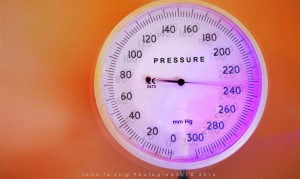
Using heroin is very dangerous but heroin withdrawal can also be risky, especially when undertaken without the help of medical professionals. Most symptoms of withdrawal are uncomfortable but not life-threatening most of the time. Sometimes, however, withdrawal and its complications can cause serious harm or even death. Medical professionals have the training, expertise and tools necessary to identify and treat heroin withdrawal symptoms and their complications.
The Not-So-Benign Symptoms of Heroin Withdrawal
Heroin withdrawal is an acute state, which means the symptoms start suddenly and tend to be severe. Withdrawal happens after someone uses heroin for a long time then suddenly stops or dramatically cuts the dosage.
Symptoms typically start six to twelve hours after the last dose and peak a day or two later. Most of the time, symptoms gradually subside over the course of a week or so. Sometimes heroin withdrawal symptoms linger for weeks or even months.
For over 25 years, people from all over the world have chosen Waismann Method as their opioid detox provider.
We know the challenges you face and the importance of creating a unique and personal experience for you right from the start.Call for Detox Options 1-800-423-2482
The severity and sometimes even the symptoms of withdrawal differ from person to person. Withdrawal can even be different each time an individual tries to quit heroin.
Early signs and symptoms of withdrawal include:
- Increased respiratory rate
- Sweating
- Yawning
- Watery eyes, runny nose
- Dilated pupils
- Stomach cramps
Other signs and symptoms develop later, including:
- Goose bumps
- Tremors and muscle twitches
- Rapid heartbeat (tachycardia)
- High blood pressure
- Fever and chills
- Loss of appetite
- Nausea, vomiting, and diarrhea
Can Withdrawal from Heroin be Fatal?
By themselves, the signs and symptoms of heroin withdrawal are not usually dangerous but serious and life-threatening complications may develop, especially in the absence of trained medical professionals. Vomiting can be dangerous if stomach contents enter the lungs, a serious and life-threatening condition known as aspiration. Excessive vomiting, diarrhea and sweating can cause severe dehydration. Those symptoms plus a loss of appetite can result in malnutrition and rapid, unhealthy weight loss.
Rapid heartbeat, high blood pressure and increased respiration may require medical attention to avoid complications. This is especially true for people who have used heroin or other opioids for a very long time and are therefore at greater risk for health problems associated with substance abuse. Many people who try to quit on their own are unaware that these underlying conditions can increase the risk for complications during withdrawal.
Heroin use and withdrawal can also cause feelings of depression that may persist for weeks. This depression can be risky in that it may lead to relapse or even suicide.
Relapse is the primary risk during withdrawal from heroin use, especially when it occurs without medical supervision. The profoundly uncomfortable and persistent withdrawal symptoms make it very difficult for even the most resolute person to quit heroin. Many people return to heroin abuse just to make the symptoms go away.
Professional Detoxification Reduces Withdrawal Symptoms its Risks
Quitting heroin is always safer than continuing to abuse this powerful opioid, but it is safer to quit with the help of a professional than enduring withdrawal alone at home. Detox professionals have the tools and expertise needed to relieve the uncomfortable and potentially dangerous withdrawal symptoms from heroin. This reduces the risk for relapse and other hazardous complications. These detox professionals can administer medications to ease nausea, lower blood pressure and stop diarrhea, for example. They can also implement procedures to hasten the heroin detoxification process to make heroin withdrawal easier to bear and less risky.
As one of the world’s most addictive and dangerous drugs, heroin is also one of the most difficult addictions to overcome. Professional detoxification can ease the symptoms of the withdrawal from heroin and reduce its risk.
Sources
Results from the 2012 National Survey on Drug Use and Health: Summary of National Findings. Center for Behavioral Health Statistics and Quality. Substance Abuse and Mental Health Services Administration. U.S. DEPARTMENT OF HEALTH AND HUMAN SERVICES. Retrieved on June 2, 2015.
Opioids. Drug Use and Dependence. Special Subjects. Professional Version. Merck Manuals. Retrieved on June 2, 2015.






